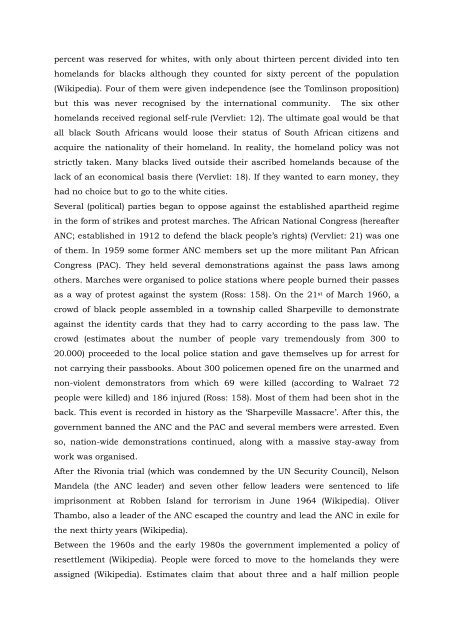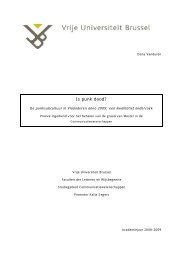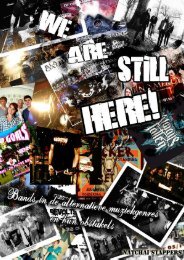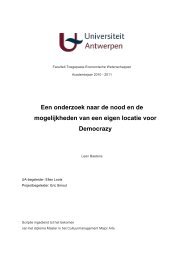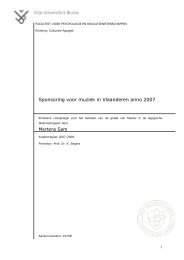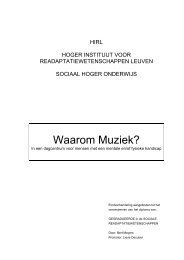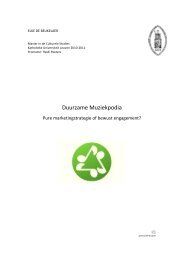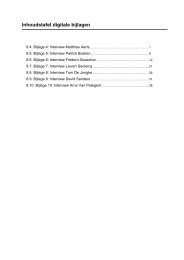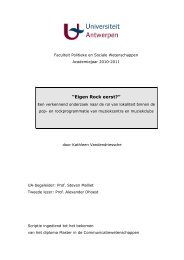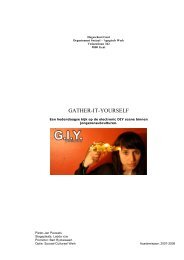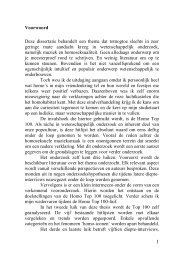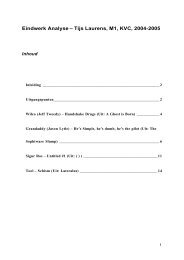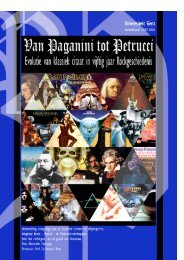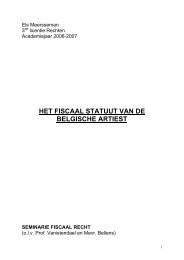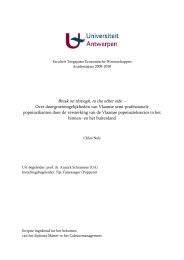Hip hop identity in a township reality. - Poppunt
Hip hop identity in a township reality. - Poppunt
Hip hop identity in a township reality. - Poppunt
Create successful ePaper yourself
Turn your PDF publications into a flip-book with our unique Google optimized e-Paper software.
percent was reserved for whites, with only about thirteen percent divided <strong>in</strong>to ten<br />
homelands for blacks although they counted for sixty percent of the population<br />
(Wikipedia). Four of them were given <strong>in</strong>dependence (see the Toml<strong>in</strong>son proposition)<br />
but this was never recognised by the <strong>in</strong>ternational community. The six other<br />
homelands received regional self-rule (Vervliet: 12). The ultimate goal would be that<br />
all black South Africans would loose their status of South African citizens and<br />
acquire the nationality of their homeland. In <strong>reality</strong>, the homeland policy was not<br />
strictly taken. Many blacks lived outside their ascribed homelands because of the<br />
lack of an economical basis there (Vervliet: 18). If they wanted to earn money, they<br />
had no choice but to go to the white cities.<br />
Several (political) parties began to oppose aga<strong>in</strong>st the established apartheid regime<br />
<strong>in</strong> the form of strikes and protest marches. The African National Congress (hereafter<br />
ANC; established <strong>in</strong> 1912 to defend the black people’s rights) (Vervliet: 21) was one<br />
of them. In 1959 some former ANC members set up the more militant Pan African<br />
Congress (PAC). They held several demonstrations aga<strong>in</strong>st the pass laws among<br />
others. Marches were organised to police stations where people burned their passes<br />
as a way of protest aga<strong>in</strong>st the system (Ross: 158). On the 21 st of March 1960, a<br />
crowd of black people assembled <strong>in</strong> a <strong>township</strong> called Sharpeville to demonstrate<br />
aga<strong>in</strong>st the <strong>identity</strong> cards that they had to carry accord<strong>in</strong>g to the pass law. The<br />
crowd (estimates about the number of people vary tremendously from 300 to<br />
20.000) proceeded to the local police station and gave themselves up for arrest for<br />
not carry<strong>in</strong>g their passbooks. About 300 policemen opened fire on the unarmed and<br />
non-violent demonstrators from which 69 were killed (accord<strong>in</strong>g to Walraet 72<br />
people were killed) and 186 <strong>in</strong>jured (Ross: 158). Most of them had been shot <strong>in</strong> the<br />
back. This event is recorded <strong>in</strong> history as the ‘Sharpeville Massacre’. After this, the<br />
government banned the ANC and the PAC and several members were arrested. Even<br />
so, nation-wide demonstrations cont<strong>in</strong>ued, along with a massive stay-away from<br />
work was organised.<br />
After the Rivonia trial (which was condemned by the UN Security Council), Nelson<br />
Mandela (the ANC leader) and seven other fellow leaders were sentenced to life<br />
imprisonment at Robben Island for terrorism <strong>in</strong> June 1964 (Wikipedia). Oliver<br />
Thambo, also a leader of the ANC escaped the country and lead the ANC <strong>in</strong> exile for<br />
the next thirty years (Wikipedia).<br />
Between the 1960s and the early 1980s the government implemented a policy of<br />
resettlement (Wikipedia). People were forced to move to the homelands they were<br />
assigned (Wikipedia). Estimates claim that about three and a half million people


